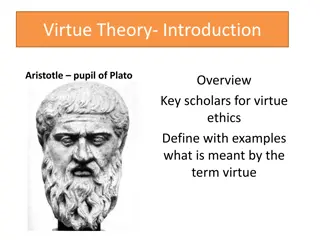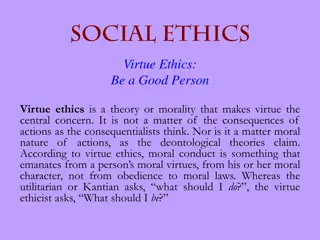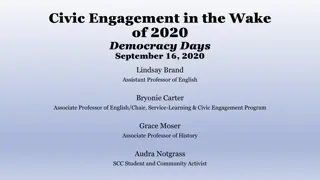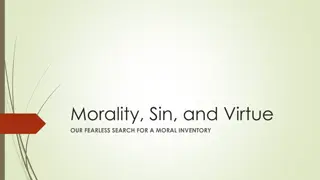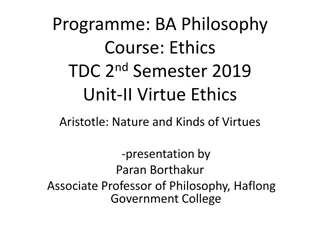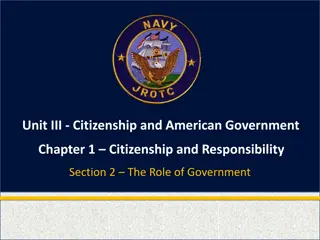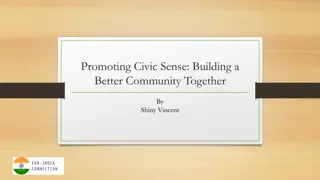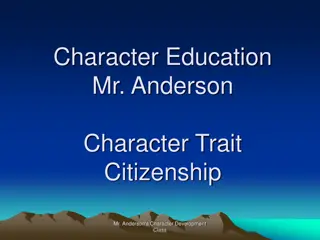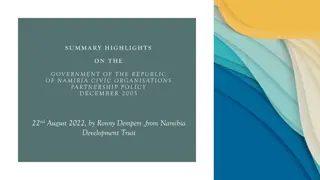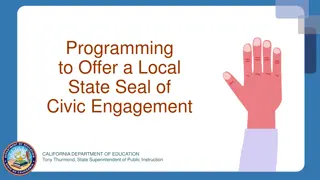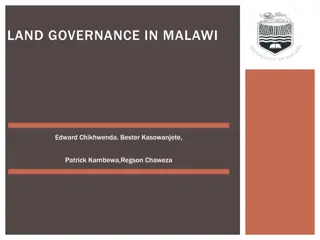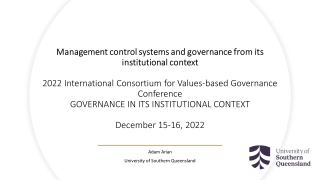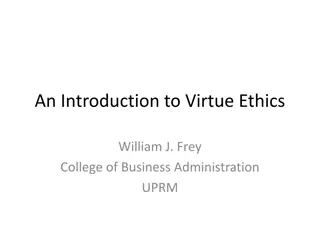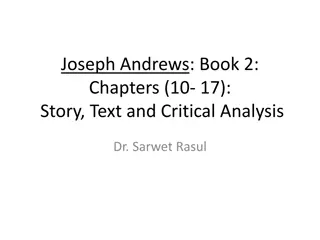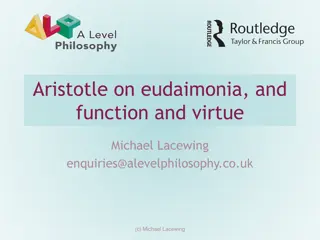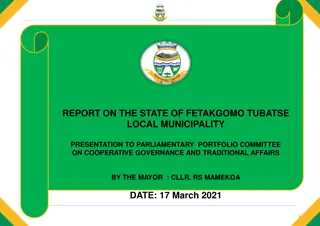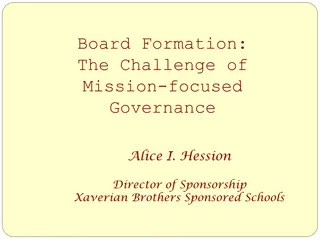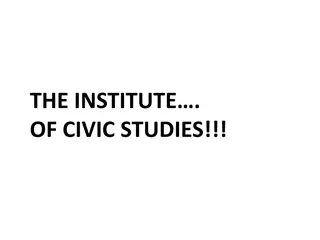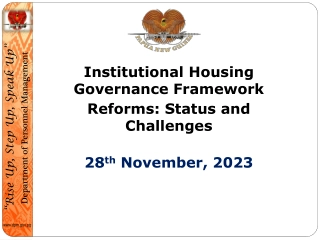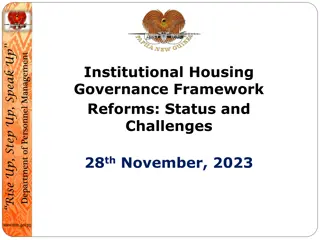Exploring Civic Virtue and Institutional Design in Early Modern Governance
Delve into the complexities of civic virtue and institutional design in early modern governance through a 3,000-word essay. Analyze the necessity of civic virtue within the state and consider contrasting perspectives on whether institutional design can replace it. Use primary texts to support your arguments and ensure a thorough examination of the key terms and concepts in the question posed.
Download Presentation

Please find below an Image/Link to download the presentation.
The content on the website is provided AS IS for your information and personal use only. It may not be sold, licensed, or shared on other websites without obtaining consent from the author. Download presentation by click this link. If you encounter any issues during the download, it is possible that the publisher has removed the file from their server.
E N D
Presentation Transcript
Requirement: The long, formally assessed essay of 3,000 words must be handed in by the deadline announced by the department for assessed work for 2ndYr 30 CAT Early Modern Courses (Wednesday 12.00pm noon Week 7). Load it to Tabula. Use your number otherwise the essays should be anonymous. After you ve submitted your work, the system will send an email to your Warwick email account to confirm your submission. Please retain a copy of this email. See: https://warwick.ac.uk/fac/arts/history/students/undergraduate/assess- coursework With the longer essay you should try to investigate a question in more depth than was possible for the shorter essay making sure you dig into the analysis of the primary literature You can choose a title from the list available through the module page: https://warwick.ac.uk/fac/arts/history/students/modules/hi2a5/assessment/ Or you can agree one with me. You can t write an answer until you know what the question is indeed, you cant really think about your essay until you know what the questions is.
The Title Question: How to start? Think about that the title asks What are its key terms? Can you define them? What relationship is suggested between which components what is the basic idea/problem? And what line do you want to take in responding to the question? Ideally discuss this with me before the reading week!
Can institutional design dispense with civic virtue? Answer with reference to AT LEAST TWO authors you have studied for this paper. What is the problem? What is Civic virtue and what is it doing in people s accounts? What is it supposed to do within the state (all states or just some)? Who might it be referring to? Check that for plausibility. Why might you think that it can be dispensed with and why might that be something you think you need to do (and who might think have thought - that)? What might such a person be thinking that institutional design consists in What would you have to believe to challenge that claim (that institutional design can do the job) What primary texts are you going to refer to on each side and what are you aiming to cite. Go back to the question make sure you ve ticked off all the elements
Neither All, or Nothing You don t need to cover every theorist of civic virtue or institutional design you can t. Part of the trick is delimiting the focus ie: defining and limiting And treat the narrower discussion in depth as a way of providing evidence (and subtlety) in answering the question In this essay I want to focus on two major accounts one in which civic virtue is ; and one in which there is an attempt to dispense with it and solve the problems of the state through design. We need to start by understanding what advocates of civic virtue are arguing, in order the better to understand the response that seeks to use institutional design. I start by discussing X; and then look at how Y seeks to resist those claims in the name of institutional design . More of this below
Writing it up Don t read everything and then write it: Write as you read! Once you have the question try and work out the structure of the piece revolving around answering that question Identify the sources, texts and evidence you want to use Write sections up as you work on them Write the conclusion Then (and only then) write the Introduction to focus your response to the question and explain how you are tackling it Read it through and write a sentence saying what each paragraph is arguing. Rework it to make sure it is saying what you want it to and re-read before submitting. Leave at least 24 hours between finishing it and submitting and re-read before submitting get others to read it for typos etc and use spell check!
Quotation Quote but explain! You think God will forgive you the murder you ve committed if you bathe in the river, if you sacrifice a black sheep, or if someone utters words over you. Voltaire, Superstition. Phil Dict Voltaire is pointing to the unreasonable supposition (superstition) that somehow performing such acts will absolve a person of responsibility for a crime, and to the self-serving character of such beliefs.
Sentences short and sharp, not rambling! Each sentence should convey a single idea or proposition, or a set of related items. Montesquieu was deeply interested in the variety of cultures and their different human possibilities. He exhibited this interest in each of his major works: Persian Letters, Grandeur et Decadence , and the Spirit of the Laws. His most systematic study of cultural difference is his Spirit of the Laws.
Paragraphs 1 The Topic Sentence is the first sentence of the paragraph it introduces the subject matter of the paragraph. The essay should ideally make sense if the reader reads the introduction, the first sentence of each paragraph, and the conclusion. Remember you are making an argument not just giving a narrative narrative historical writing is different. At University level, if you are using narrative you should be using it as evidence in an argument - and it s the argument that matters.
Paragraphs 2 Topic sentences may be evidential or propositional Evidential when the paragraph is setting out evidence in a descriptive or narrative way. Descriptive: Britain in 1770 was in the throes of an industrial revolution. In Birmingham .In Manchester .etc Narrative: Henry Somerby was born in XXX and lived the first XX years of his life at his parents home in Y. He was educated He was not a gifted child . Propositional: The violence of the reaction to Godwin s Memoirs of the Author of a Vindication indicates the depth of eighteenth century misogyny. It is also evidence of a more general reaction against what was seen as the lax morals and experimental culture of late eighteenth century England. Evidence for former evidence for latter
Paragraphs 4 Topic sentence should be clearly related to the question what you have set out to do in the introduction. Subsequent sentences in a paragraph should be clearly related to the topic sentence. When there is a new topic start a new paragraph.
Paragraphs 5: How central if freedom to Locke s account of the importance of civil government? Make the claims clear, then develop them and suggest subtleties, then move to the next claim in the next paragraph. Propositions about Locke: Locke believed fundamentally in the importance of human freedom. In the Second Treatise he defended the idea that men s fundamental rights were to life, liberty and property. He argued that liberty should not be confused with licence claiming that ill deserves the name constraint that hedges us in from bogs and precipices. This shows that he did not consider restrictions on licence or curtailing insignificant freedoms as of importance. For Locke, the point of liberty is to allow people to live out their understanding of God s purposes for them, not to allow them to do anything they may momentarily want to do. In this, we can recognise a blend of traditional protestant beliefs with commitments to the value of liberty which we are accustomed to associate with the Enlightenment. Locke s account uses then, a very moralised conception of freedom (not natural liberty but liberty under law and issue of the nature of that law; plus consent) Nonetheless, is it not the only major value: Locke also believed in equality. Next para: Equality and liberty are related in Locke through his account of rights each individual has equal rights. Next para: Raises the question of under what conditions civil government is compatible with freedom requires consent And how is accumulation of property compatible with freedom and equality: Workmanship and property Pareto otimality rather than a thick conception of consent Relatively thin theory of the state adjudication on the interpretation of the law of nature Is this because he is a libertarian obsessed with freedom ? Or is it because God plays a fundamental role in Locke s argument etc
Paragraphs 6: Coordinate and subordinate paragraphs: Coordinate = Topic sentence with series of sentences setting out evidence where the order of the sentences is not important. Subordinate: Topic sentence sets out claim but the subsequent sentences develop that claim in a particular direction, so that the order of the sentences matter.
Coordinate Locke believed fundamentally in the importance of human freedom. In the second treatise he defended the idea that men s fundamental rights were to life, liberty and property. He argued that liberty should not be confused with licence claiming that that ill deserves the name constraint that hedges in from bogs and precipices. He does not consider restrictions on licence or insignificant freedoms to be of importance. The point of liberty is to allow people to live out their understanding of God s purposes for them, and not to allow them to do anything they may momentarily want to do. Locke believed fundamentally in the importance of human freedom. He argued that liberty should not be confused with licence claiming that that ill deserves the name constraint that hedges in from bogs and precipices. In the second treatise he defended the idea that men s fundamental rights were to life, liberty and property. He does not consider restrictions on licence or insignificant freedoms to be of importance. The point of liberty is to allow people to live out their understanding of God s purposes for them, and not to allow them to do anything they may momentarily want to do.
subordinate Voltaire thought that the divine will was inscrutable. We cannot know what God s purposes are. Consequently, we cannot live our lives in the light of those purposes. Since we cannot know what he wants of us, we must decide for ourselves. The only resource we have for determining how to live is our reason. Our reason, however, is fallible and easily swayed by our passions. This means that we should distrust grand theories and extravagant human projects, and that we should content ourselves by cultivating our self-understand and our own gardens.
Why it is subordinate: Right vs Wrong! Voltaire thought that the divine will was inscrutable. We cannot know what God s purposes are. Consequently, we cannot live our lives in the light of those purposes. Since we cannot know what he wants of us, we must decide for ourselves. The only resource we have for determining how to live is our reason. Our reason, however, is fallible and easily swayed by our passions. This means that we should distrust grand theories and extravagant human projects, and that we should content ourselves by cultivating our self-understand and our own gardens. Voltaire thought that the divine will was inscrutable. This means that we should distrust grand theories and extravagant human projects, and that we should content ourselves by cultivating our self- understand and our own gardens. Our reason, however, is fallible and easily swayed by our passions. Since we cannot know what he wants of us, we must decide for ourselves. We cannot know what God s purposes are. The only resource we have for determining how to live is our reason. Consequently, we cannot live our lives in the light of those purposes.
Conjunctions Note: In the coordinate there are no conjunctions; in the subordinate watch the work they do: Voltaire thought that the divine will was inscrutable. We cannot know what God s purposes are. Consequently, we cannot live our lives in the light of those purposes. Since we cannot know what he wants of us, we must decide for ourselves. The only resource we have for determining how to live is our reason. Our reason, however, is fallible and easily swayed by our passions. This means that we should distrust grand theories and extravagant human projects, and that we should content ourselves by cultivating our self-understand and our own gardens.
BAD conjunctions Locke believed fundamentally in the importance of human freedom. However, he argued that liberty should not be confused with licence claiming that that ill deserves the name constraint that hedges in from bogs and precipices. Hence, this indicates that he does not consider restrictions on licence or insignificant freedoms to be of importance. Moreover, in the second treatise he defended the idea that men s fundamental rights were to life, liberty and property. Thus, the point of liberty is to allow people to live out their understanding of God s purposes for them, and not to allow them to do anything they may momentarily want to do. None of these is necessary because the para is a coordinate one one point is not preparing the ground for the one that follows.
Your essay should be propositional It is dealing with a question and making a case in answer to that question. Each paragraph is bringing evidence to bear in support of propositions that are related to your response to the question Although some narrative, and some setting out of evidence may be necessary, the bulk of your essay will be propositional (making an argument) and this will use subordinate paragraphs. But make sure your conjunctions work to make your argument, rather than distracting from it.
Things to avoid redundancies and distractions and artificial conjunctions However, although Since, however Moreover, although Hence/Hencely! In order to Short sentences are good. Long sentences often lose their point. Work with someone spotting redundancy, confusions, lack of clarity etc.
Other bad stuff the likes of.. incredibly refuting/X refuted y On the personal pronoun I I think, I believe, I feel, it seems to me Vs I will show, argue, make a case
3,000 words Is not a lot you need to use them well Use them: to increase the range and depth of to explore the evidence ie., to quote to increase the subtlety of the claims to demonstrate deeper knowledge and evidence cited AND interpret with detail understanding
Focus the essay: Did Hobbes think Kings had to be tyrannical? Start by de-limiting the topic The question raises fundamental issues about the interpretation of Hobbes s argument that the sovereign should be absolute. It makes a fundamental error in thinking that absolutism means that there are no constraints on how the sovereign should act, and it misses the point the key point and manner in which the sovereign s power should be absolute. I will discuss the case he makes for the sovereign being absolute and then go on to consider how that comes about, and how we should understand the place of the laws of nature in relation to the sovereign. I will argue that when we understand what kinds of problems creates the need for an absolute sovereign we can recognise the inherent limits in what Hobbes is arguing for.
Get the proposition clear at the start and avoid repeating it. What did Wollstonecraft believe the role of women should be? MW part of a growing literature by women challenging their relegation to the domestic and private sphere. Much historiography understates the roles women played in the emerging commercial and polite society, thereby following the biases of 18thC men; but it also (I shall argue) overstates the emancipatory objectives of women writers at the end of the century. MW is no exception to this. I will argue that she essentially accepts women s role as partners in the family. After demonstrating this from her account in her second Vindication however, I will raise the question of how far we should treat this as her real position, and how far she felt constrained to express things in this way because of the patriarchal order for which she was writing. Then you don t need to comment on each piece of evidence just build the evidence up of the various claims she makes about women - but don t keep repeating so this shows esp. since you want to complicate the picture towards the end.
Internet Essay!:What were the major causes of the French Revolution? The major cause of the French Revolution was the disputes between the different types of social classes in French society. The French Revolution of 1789-1799 was one of the most important events in the history of the world. The Revolution led to many changes in France, which at the time of the Revolution was the most powerful state in Europe. The Revolution led to the development of new political forces such as democracy and nationalism. It questioned the authority of kings, priests, and nobles. The Revolution also gave new meanings and new ideas to the political ideas of the people. The French Revolution was spread over the ten year period between 1789 and 1799. The primary cause of the revolution was the disputes over the peoples' differing ideas of reform. Before the beginning of the Revolution, only moderate reforms were wanted by the people. An example of why they wanted this was because of king Louis XIV's actions. At the end of the seventeenth century, King Louis XIV's wars began decreasing the royal finances dramatically. This worsened during the eighteenth century. The use of the money by Louis XIV angered the people and they wanted a new system of government. The main cause of the Revolution was the differences between the three social classes that existed in France at that time. There was a severe amount of injustice in the tax system (doc.1). The third estate paid the highest taxes, while the first and third paid low taxes or none at all. The rent was to high, and the price on bread was above people's economic ability to pay (doc.1). Although the third estate made up most of the population of France, it owned less land then the first and second estate (doc.2). While the main cause of the French Revolution was the social inequality, there were other reasons, which caused the French to revolt. One was the idea's of the Enlightenment.
Grammatical and spelling errors The major cause of the French Revolution was the disputes between the different types of social classes in French society. The French Revolution of 1789-1799 was one of the most important events in the history of the world. The Revolution led to many changes in France, which at the time of the Revolution was the most powerful state in Europe. The Revolution led to the development of new political forces such as democracy and nationalism. It questioned the authority of kings, priests, and nobles. The Revolution also gave new meanings and new ideas to the political ideas of the people. The French Revolution was spread over the ten year period between 1789 and 1799. The primary cause of the revolution was the disputes over the peoples' differing ideas of reform. Before the beginning of the Revolution, only moderate reforms were wanted by the people. An example of why they wanted this was because of king Louis XIV's actions. At the end of the seventeenth century, King Louis XIV's wars began decreasing the royal finances dramatically. This worsened during the eighteenth century. The use of the money by Louis XIV angered the people and they wanted a new system of government. The main cause of the Revolution was the differences between the three social classes that existed in France at that time. There was a severe amount of injustice in the tax system (doc.1). The third estate paid the highest taxes, while the first and third paid low taxes or none at all. The rent was to high, and the price on bread was above people's economic ability to pay (doc.1). Although the third estate made up most of the population of France, it owned less land then the first and second estate (doc.2). While the main cause of the French Revolution was the social inequality, there were other reasons, which caused the French to revolt. One was the idea's of the Enlightment.
Propositional errors The major cause of the French Revolution was the disputes between the different types of social classes in French society. The French Revolution of 1789-1799 was one of the most important events in the history of the world. The Revolution led to many changes in France, which at the time of the Revolution was the most powerful state in Europe. The Revolution led to the development of new political forces such as democracy and nationalism. It questioned the authority of kings, priests, and nobles. The Revolution also gave new meanings and new ideas to the political ideas of the people. The French Revolution was spread over the ten year period between 1789 and 1799. The primary cause of the revolution was the disputes over the peoples' differing ideas of reform. Before the beginning of the Revolution, only moderate reforms were wanted by the people. An example of why they wanted this was because of king Louis XIV's actions. At the end of the seventeenth century, King Louis XIV's wars began decreasing the royal finances dramatically. This worsened during the eighteenth century. The use of the money by Louis XIV angered the people and they wanted a new system of government. The main cause of the Revolution was the differences between the three social classes that existed in France at that time. There was a severe amount of injustice in the tax system (doc.1). The third estate paid the highest taxes, while the first and third paid low taxes or none at all. The rent was to high, and the price on bread was above people's economic ability to pay (doc.1). Although the third estate made up most of the population of France, it owned less land then the first and second estate (doc.2). While the main cause of the French Revolution was the social inequality, there were other reasons, which caused the French to revolt. One was the idea's of the Enlightenment. Green at least three accounts of what the principal cause is Red they haven t done enough to explain the 70+ years between Louis XIV s death and the Revolution and they claim that people in that period only wanted limited reform so Louis can t have done that much damage!
Topic sentence unrelated to paragraph content (para 2) The French Revolution was spread over the ten year period between 1789 and 1799. The primary cause of the revolution was the disputes over the people s differing ideas of reform. Before the beginning of the Revolution, only moderate reforms were wanted by the people. At the end of the seventeenth century, King Louis XIV's wars began decreasing the royal finances dramatically. This worsened throughout the eighteenth century. The use of the money by Louis XIV angered the people and they wanted a new system of government.
Cutting the C: para 1 The major cause of the French Revolution was the disputes between the different social classes in French society. The French Revolution of 1789-1799 was one of the most important events in the history of the world. The Revolution led to many changes in France, which at the time of the Revolution was the most powerful state in Europe. The Revolution led to the development of new political forces such as democracy and nationalism. It questioned the authority of kings, priests, and nobles. The Revolution also gave new meanings and new ideas to the political ideas of the people.
A bit better The French Revolution of 1789-1799 is considered one of the most important events in the history of the world. It led to many changes in France, which was then one of the most powerful states in Europe. The Revolution questioned the authority of the king, priests, and nobility and unleashed new forces of democracy and nationalism. I shall argue that the French Revolution was the result of a fundamental clash between the interests of different social classes in French society.
questions What obstacles face attempts to speak truly in autobiographical writing in the eighteenth and early nineteenth centuries? Answer with reference to AT LEAST TWO authors you have studied for this paper. In what ways and why were men of the romantic period apparently so troubled by questions of identity? Answer with reference to AT LEAST TWO authors you have studied for this paper What do stadial theories contribute to eighteenth century understandings of society and economy? Answer with reference to AT LEAST TWO authors you have studied for this paper Is consumption a vice? Answer with reference to AT LEAST TWO authors you have studied for this paper How did people at the end of the eighteenth and beginning of the nineteenth centuries distinguish between productive and unproductive labour? Answer with reference to AT LEAST TWO authors you have studied for this paper. What priority is given to liberty and equality respectively in the writing of AT LEAST TWO writers you have studied for this paper.
Bibliography: The more you read . You don t need to be a grammar fascist but if you find it hard then you might find the following helpful: Lynne Truss, Eats, Shoots and Leaves (2003) And if you want to know about the evolution of the English language: David Crystal, Spell it out (2012)


